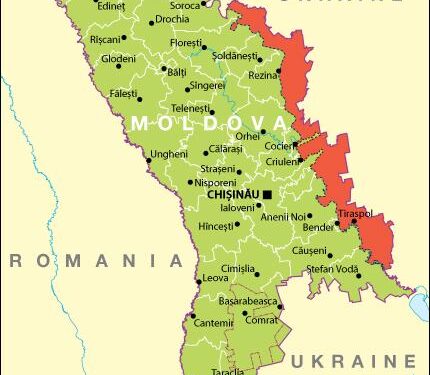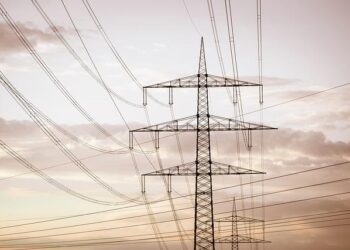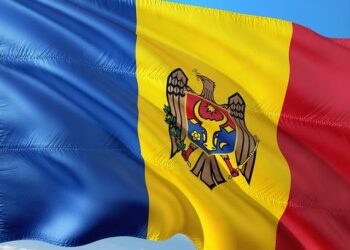Moldova is set to hold a pivotal parliamentary election that could determine the country’s future direction, particularly its ambitions to join the European Union. As voters head to the polls, the outcome is widely seen as a referendum on Moldova’s Western integration efforts, amid rising geopolitical tensions in the region. The election not only carries significant domestic implications but also resonates beyond its borders, with Brussels closely monitoring the results as a test of Moldova’s commitment to democratic reforms and closer ties with Europe.
Moldova’s Parliamentary Vote Seen as Crucial Test for European Integration Prospects
Moldova’s upcoming parliamentary elections represent a pivotal moment for the country’s future, especially regarding its aspirations to join the European Union. Observers highlight that the vote will determine whether reform-minded pro-European parties retain control, potentially accelerating integration efforts, or if the political tide will turn towards more Russia-friendly factions. The elections come amidst mounting public demand for transparency, anti-corruption measures, and economic revitalization – all key conditions stipulated by the EU for accession talks to progress.
Key factors under scrutiny in this election include:
- Economic stability: Addressing inflation and foreign investment concerns remains a top priority.
- Rule of law: Combatting entrenched corruption continues to challenge governance reforms.
- Geopolitical alignment: Balancing ties between Western institutions and Russian influence is highly contested.
| Party | Stance on EU Integration | Polling % |
|---|---|---|
| Pro-European Alliance | Strongly supportive | 42% |
| Socialist Party | Pro-Russian | 30% |
| Centrist Bloc | Moderate, pragmatic | 18% |
| Other | Various | 10% |
Domestic Political Divisions Highlight Challenges Ahead for Moldova’s EU Membership Ambitions
The upcoming parliamentary elections in Moldova have cast a spotlight on the stark political divisions shaping the country’s trajectory. With the EU membership bid hanging in the balance, parties are sharply divided on key issues such as judicial reform, anti-corruption measures, and relations with Russia. The pro-European factions argue for accelerated integration efforts and alignment with EU standards, while opposition groups warn of socio-economic disruptions and advocate for a balanced approach that maintains ties with Moscow. This polarization not only complicates governance but also risks slowing down the legislative reforms crucial for Brussels’ approval.
Key Challenges Ahead Include:
- Fragmentation among pro-EU parties, risking coalition instability
- Resistance from pro-Russian factions aiming to pivot away from EU integration
- Public scepticism fueled by economic hardships and misinformation
- Pressure to implement anti-corruption laws amid entrenched interests
| Political Bloc | Position on EU Accession | Projected Parliamentary Seats |
|---|---|---|
| Pro-European Coalition | Strongly in favor | 45-50% |
| Pro-Russian Alliance | Opposed / Cautious | 30-35% |
| Centrist / Independent | Mixed / Conditional Support | 15-20% |
Experts Urge Strengthened Electoral Oversight and International Support to Ensure Transparent Results
Electoral experts and international observers have raised alarms over the volatility surrounding Moldova’s upcoming parliamentary vote, emphasizing the critical need for enhanced oversight mechanisms. With the nation’s EU accession ambitions hanging in the balance, concerns linger about potential irregularities that could undermine the legitimacy of the results. Experts advocate for deploying advanced monitoring technologies and increased transparency throughout the entire electoral process to safeguard democratic integrity. Key measures recommended include:
- Independent auditing of voter registers
- Real-time vote counting observation
- Robust reporting channels for electoral complaints
- Enhanced training for election officials
Furthermore, calls for greater international involvement have gathered momentum, with organizations urged to support Moldova through technical assistance and electoral funding. Such international engagement aims not only to bolster election transparency but also to deter malign external influences that could skew the parliamentary outcome. In a region marked by geopolitical tensions, these efforts are seen as essential to upholding Moldova’s democratic aspirations and reinforcing public trust during this pivotal electoral juncture.
| Support Area | International Role | Expected Impact |
|---|---|---|
| Election Monitoring | Deploy observer missions & technology | Enhanced transparency & credibility |
| Technical Training | Capacity-building for officials | More efficient, fair administration |
| Funding & Resources | Financial support for electoral bodies | Reliable infrastructure & materials |
| Conflict Prevention | Mediation & early dispute resolution | Reduced tensions & peaceful outcomes |
Final Thoughts
As Moldova heads to the polls in a pivotal parliamentary election, the outcome will not only determine the country’s domestic political direction but also influence its aspirations for closer integration with the European Union. With regional tensions and economic challenges looming large, both pro-European and pro-Russian forces are mobilizing support, making this vote a critical juncture for Moldova’s future. Observers across Europe and beyond will be closely watching the results, which could shape the nation’s trajectory for years to come.
















